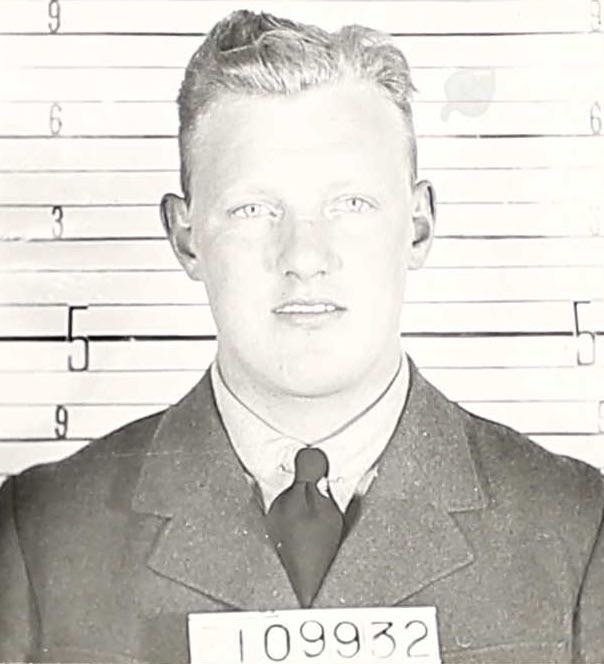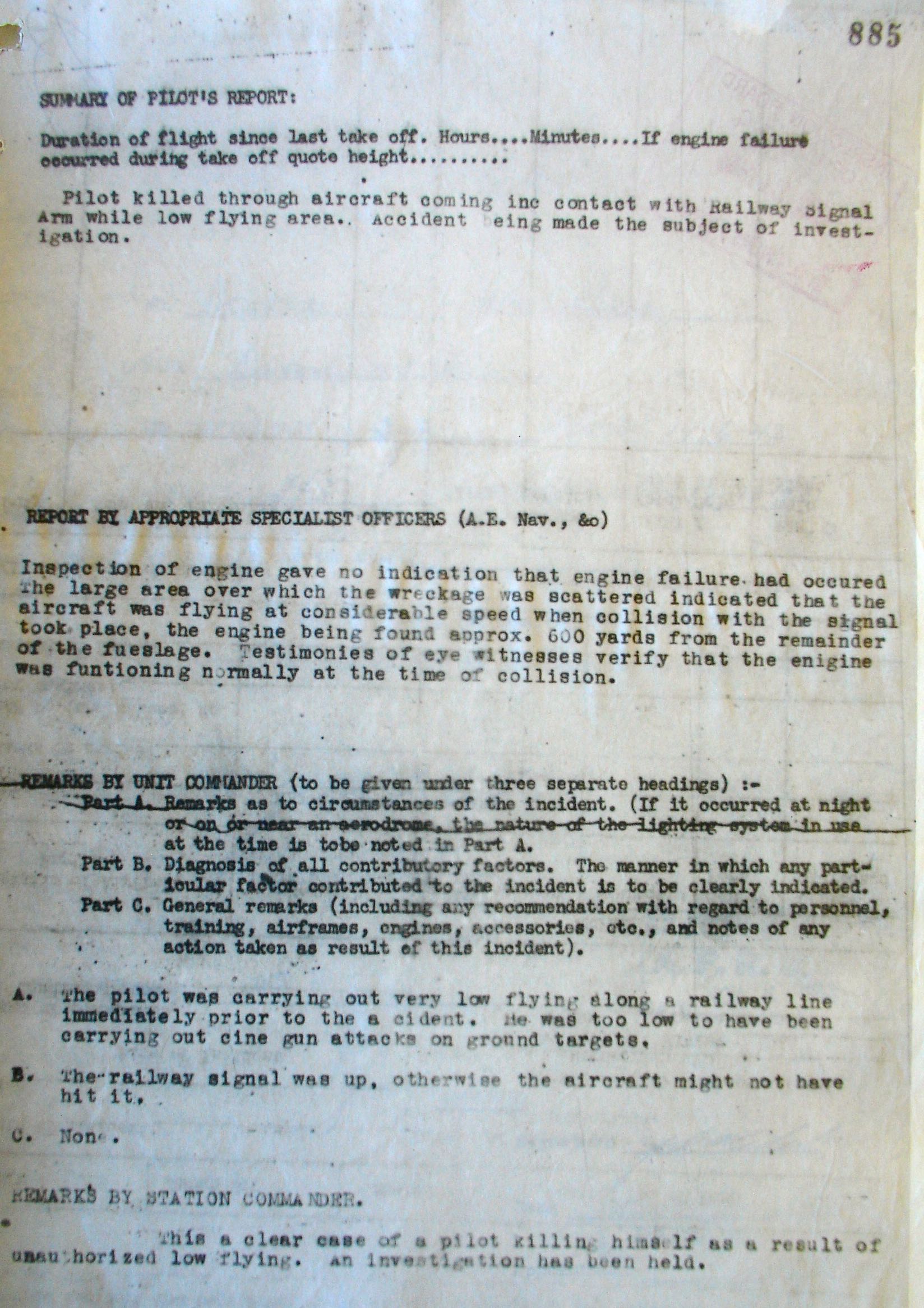

January 14, 1919 - April 9, 1943


Walter Alexander Dixon was the son of Thomas Russell (farmer) and Ellen (nee McKay) Dixon of Markdale, Ontario. He was born in Owen Sound, Ontario. He had one brother and four sisters.
He was an elevator operator and stock clerk for two years in civil life at an automobile accessories company. He had been living in Windsor, Ontario at the time he signed up with the RCAF in Windsor. He liked golf, tennis and swimming. He stood 5' 8" tall, weighed 165 pounds, had blue eyes, blonde hair and a ruddy complexion. He was considered to be a good average type, overweight, athletic type, sincere, intelligent and good training material. "Solid chap. Not bubbling over with 'zip'. Lacking in enthusiasm." He noted he had three upper teeth knocked out when he was 13 years of age. He wore a partial upper denture. On his papers, it was noted he was enlisting in the RCAF because he was caught in the draft (was to report as Trainee in one week). Willing to be gunner or observer if he did not make it as pilot.
At No. 5 ITS: October to December 1941: "Excellent type of lad, keen about work, good pilot material." At No. 17 EFTS: "Appearance and discipline very good. Slow to orient himself on map reading." 21 out of 28 in class. "Average student. Has some difficulty with work. Neat, alert, is very pleasant and well spoken, but youthful." He was involved in an accident at No. 17 EFTS in Finch II 4791 on January 6, 1942 during solo practice. "Pupil overshot his field and continued on with landing; ran off edge of field and aircraft turned over. Pilot in error of judgement and lack of experience." He was awarded his Pilot's Flying Badge at No. 8 SFTS, Moncton, on June 19, 1942. He was not recommended for commission. "Just average ability and training. Should make endeavour to improve in airmanship and co-ordination." His instrument flying was low average. "Just average and tendency to become careless in his flying. Unusual positions in instrument flying. Pupil's choice: B." In Ground Training: A good average student.
He departed Canada on October 1942 and arrived in the UK on November 4, 1942. He was sent to 55 OTU on November 24, 1942 and assigned to 195 Squadron on December 28, 1942.
Dixon fractured his ankle on January 11, 1943 and was away sick for nearly three months. "He had been back with us only about a week when he was killed. Sgt. Dixon promised to be a good and reliable pilot and he was a well behaved and likeable NCO." Sergeant Walter Alexander Dixon was killed in a flying accident on April 9, 1943 in Typhoon DN424 when his aircraft came into contact with a railway signal arm. There was an investigation and an inspection of the engine gave no indication that there had been an engine failure. The wreckage area was scattered, indicating the Typhoon was flying at a considerable speed when the collision took place. The engine was found 600 yards from the remainder of the fuselage. "The pilot was carrying out very low flying along a railway line immediately prior to the accident. He was too low to have been carrying out cine gun attacks on ground targets. The railway signal was up, otherwise, the aircraft might not have hit it. REMARKS: This is a clear case of a pilot killing himself as a result of unauthorized low flying."
LINKS: